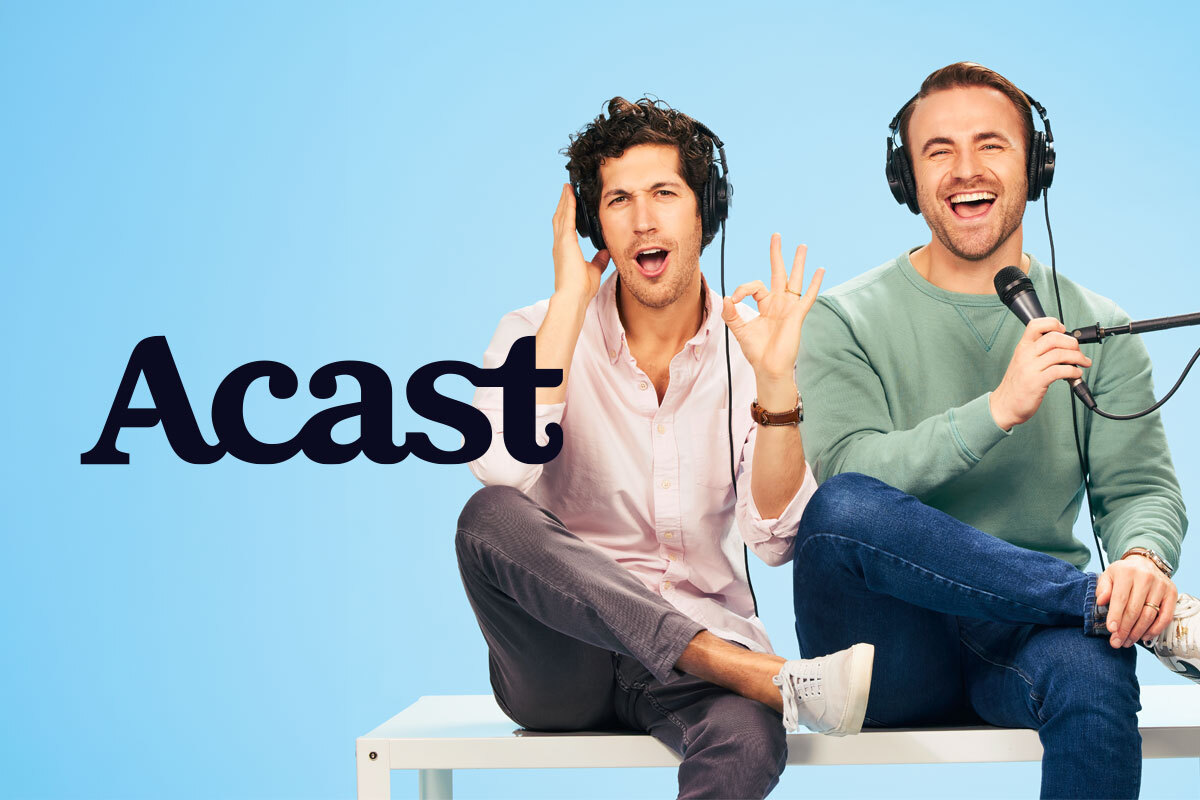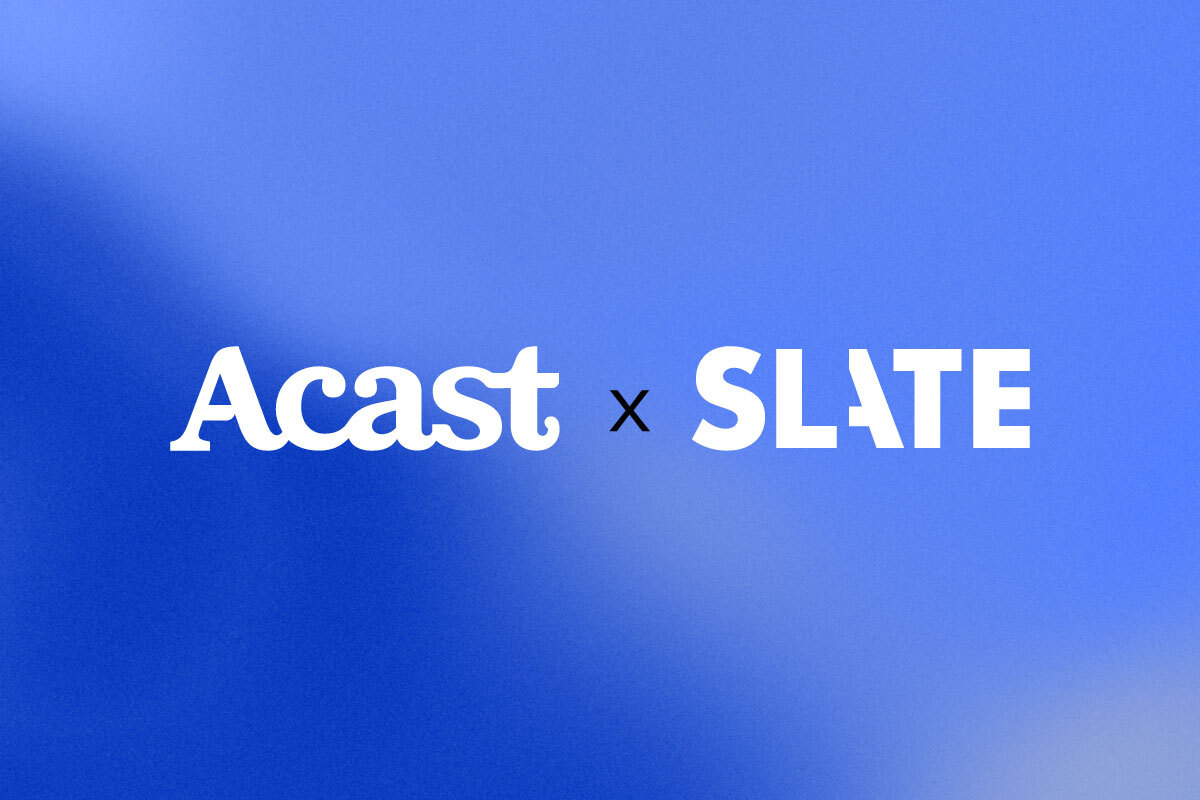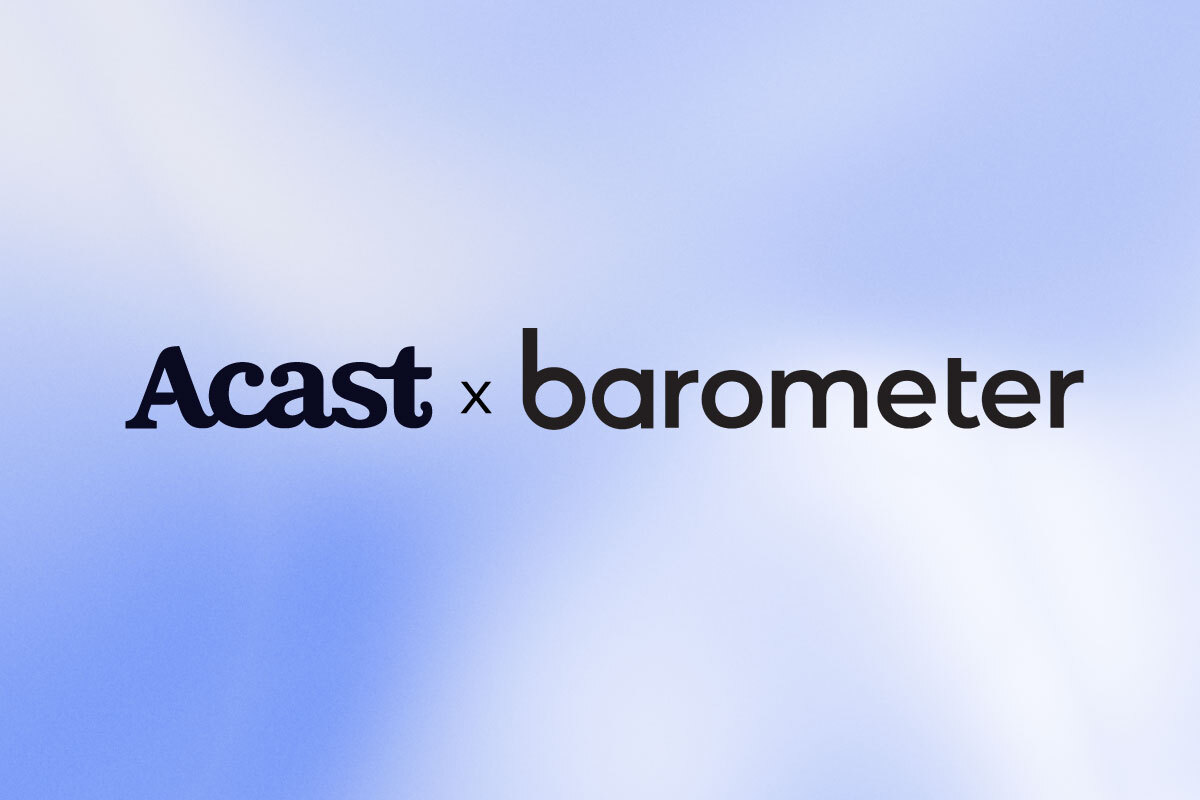Breaking stereotypes in audio advertising

At Acast, we believe in the power of diverse voices to break down stereotypes and foster inclusivity. Our extensive network of podcast hosts and podcast genres has something for everyone, challenging oversimplified images and ideas that often pervade mainstream media.
This commitment led us to partner with the Unstereotype Alliance, an organization dedicated to eradicating harmful stereotypes in advertising and media, to create a more equal world.
Pioneering research into audio advertising diversity
The Unstereotype Alliance commissioned together with Acast, Tesco, and Kantar conducted a first-of-its-kind study into the diversity of audio advertising in the UK. The study utilized a two-stage methodology to analyze and understand the biases present in podcast and national radio advertising.
Stage 1: comprehensive ad analysis
Kantar analyzed approximately 120 ads from January to June 2023, covering sectors like finance, entertainment, retail, and food. Each ad was reviewed multiple times and coded based on various characteristics such as the gender, location, accent, and age of the main character. This meticulous analysis laid the groundwork for the second stage of the study.
Stage 2: testing listener reactions
In the second stage, Acast created audio ads that were tested with 100 respondents each. These ads were designed to isolate variables, such as gender and regional accent, to gauge intuitive reactions and perceptions. Respondents were asked a range of reflective questions and underwent Intuitive Association Testing to capture their immediate responses to the ads.
Key findings: gender and accent biases
The results highlighted significant biases in both representation and perception:
Gender biases
- Women make up 51% of the UK population but only 36% of audio ads feature female voices as the lead.
- Male voices dominate particularly in finance (53%), entertainment (48%) and food (47%) audio ads.
- Women represent 53% of voices heard in retail ads compared to 23% male voices.
- When listening to grocery and finance ads with a male voiceover, respondents intuitively found the ad more informative and authoritative whilst the female voiced ads were deemed more trustworthy and relatable.
Regional accent biases
- 62% of UK radio and podcast advertisements featuring Estuary English accents associated with the area along the River Thames, including London, or the King’s English.
- Accents from the North of England featured in just 19% of ads and Welsh and Scottish accents appearing in just 2% of ads, while voices from the Midlands feature in 1% of ads
- When broken down by sector, a mere 13% of finance and entertainment audio ads feature Northern voices with retail and food ads faring better at 27% and 23% respectively.
- Regional bias came into play with much fewer positive associations for the Northern voiced ads. The Southern voiced ads were seen as more trustworthy, confident and helpful while Northern voiced ads were associated with quality and taste.
Opportunities to overturn stereotypes
While the results show positive associations for both male and female voices, and for Northern and Southern accents, there is a clear opportunity to challenge stereotypes and biases across gender and regionality.
For example, featuring more female voices in authoritative roles within finance can balance existing biases. Similarly, depicting male voices in more relatable and caring roles can help break down traditional gender roles.
When it comes to enjoyment of audio ads, we also saw that male and Southern voiced ads had higher enjoyability scores. However, the female voiced finance ad was more memorable (74% female voiced ad vs 67% male voiced ad) presenting brands in this sector with an opportunity to break typical conventions and feature more female voices.
The research clearly shows that there is inherent bias in UK audio advertising (as well as the advertising landscape more generally). These stereotypes are two fold:
- Brand led stereotypes with the choices brands are making when it comes to choosing voice over talent, genre led advertising roles, and role portrayals
- But also through these inherent biases from listeners who are are intuitively drawn to gender and regional stereotypes
This makes our role at Acast and as an audio company even more crucial, and it’s why we partnered with Unstereotype Alliance, Tesco and Kantar; to shed light on these biases.
As an audio company, we are doing everything we can to overcome these biases through our broad range of podcast genres, topics and most importantly hosts and creators representing identities spanning culture, religion, sexuality and disability — helping us to ensure we help change these stereotypes in advertising.
Learn more
For more information or to access the full research report, contact Bianca Bush at bianca.bush@acast.com. Together, we can continue to break down stereotypes and promote diversity in audio advertising.
At Acast, we believe in the power of diverse voices to break down stereotypes and foster inclusivity. Our extensive network of podcast hosts and podcast genres has something for everyone, challenging oversimplified images and ideas that often pervade mainstream media.
This commitment led us to partner with the Unstereotype Alliance, an organization dedicated to eradicating harmful stereotypes in advertising and media, to create a more equal world.
Pioneering research into audio advertising diversity
The Unstereotype Alliance commissioned together with Acast, Tesco, and Kantar conducted a first-of-its-kind study into the diversity of audio advertising in the UK. The study utilized a two-stage methodology to analyze and understand the biases present in podcast and national radio advertising.
Stage 1: comprehensive ad analysis
Kantar analyzed approximately 120 ads from January to June 2023, covering sectors like finance, entertainment, retail, and food. Each ad was reviewed multiple times and coded based on various characteristics such as the gender, location, accent, and age of the main character. This meticulous analysis laid the groundwork for the second stage of the study.
Stage 2: testing listener reactions
In the second stage, Acast created audio ads that were tested with 100 respondents each. These ads were designed to isolate variables, such as gender and regional accent, to gauge intuitive reactions and perceptions. Respondents were asked a range of reflective questions and underwent Intuitive Association Testing to capture their immediate responses to the ads.
Key findings: gender and accent biases
The results highlighted significant biases in both representation and perception:
Gender biases
- Women make up 51% of the UK population but only 36% of audio ads feature female voices as the lead.
- Male voices dominate particularly in finance (53%), entertainment (48%) and food (47%) audio ads.
- Women represent 53% of voices heard in retail ads compared to 23% male voices.
- When listening to grocery and finance ads with a male voiceover, respondents intuitively found the ad more informative and authoritative whilst the female voiced ads were deemed more trustworthy and relatable.
Regional accent biases
- 62% of UK radio and podcast advertisements featuring Estuary English accents associated with the area along the River Thames, including London, or the King’s English.
- Accents from the North of England featured in just 19% of ads and Welsh and Scottish accents appearing in just 2% of ads, while voices from the Midlands feature in 1% of ads
- When broken down by sector, a mere 13% of finance and entertainment audio ads feature Northern voices with retail and food ads faring better at 27% and 23% respectively.
- Regional bias came into play with much fewer positive associations for the Northern voiced ads. The Southern voiced ads were seen as more trustworthy, confident and helpful while Northern voiced ads were associated with quality and taste.
Opportunities to overturn stereotypes
While the results show positive associations for both male and female voices, and for Northern and Southern accents, there is a clear opportunity to challenge stereotypes and biases across gender and regionality.
For example, featuring more female voices in authoritative roles within finance can balance existing biases. Similarly, depicting male voices in more relatable and caring roles can help break down traditional gender roles.
When it comes to enjoyment of audio ads, we also saw that male and Southern voiced ads had higher enjoyability scores. However, the female voiced finance ad was more memorable (74% female voiced ad vs 67% male voiced ad) presenting brands in this sector with an opportunity to break typical conventions and feature more female voices.
The research clearly shows that there is inherent bias in UK audio advertising (as well as the advertising landscape more generally). These stereotypes are two fold:
- Brand led stereotypes with the choices brands are making when it comes to choosing voice over talent, genre led advertising roles, and role portrayals
- But also through these inherent biases from listeners who are are intuitively drawn to gender and regional stereotypes
This makes our role at Acast and as an audio company even more crucial, and it’s why we partnered with Unstereotype Alliance, Tesco and Kantar; to shed light on these biases.
As an audio company, we are doing everything we can to overcome these biases through our broad range of podcast genres, topics and most importantly hosts and creators representing identities spanning culture, religion, sexuality and disability — helping us to ensure we help change these stereotypes in advertising.
Learn more
For more information or to access the full research report, contact Bianca Bush at bianca.bush@acast.com. Together, we can continue to break down stereotypes and promote diversity in audio advertising.





